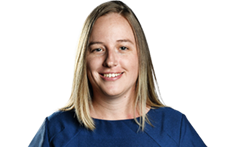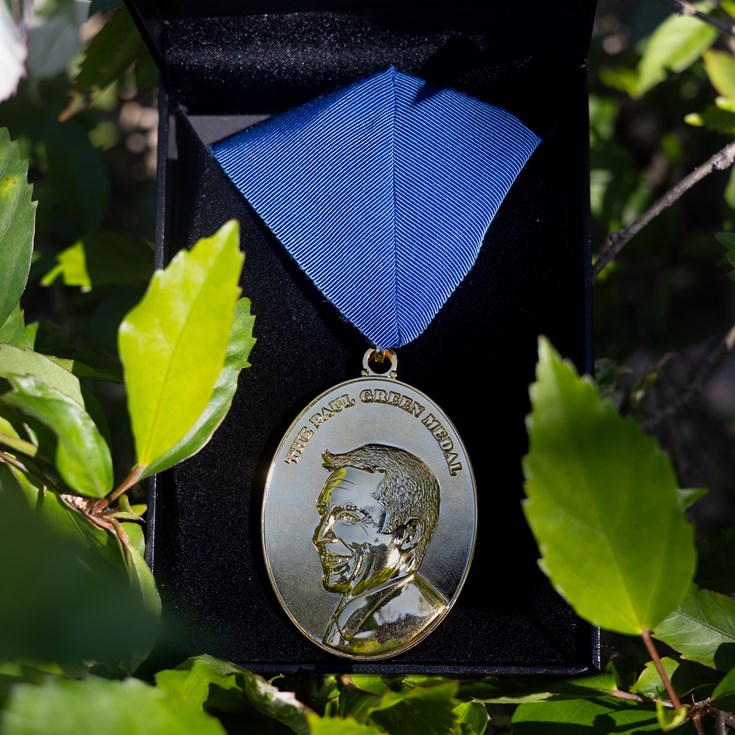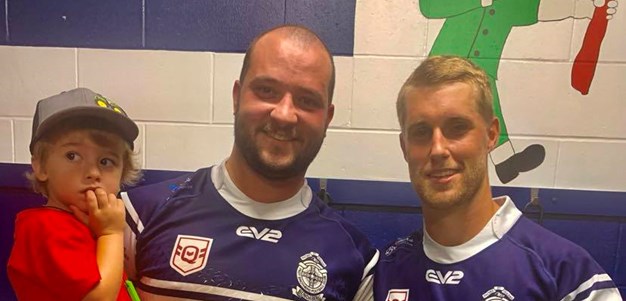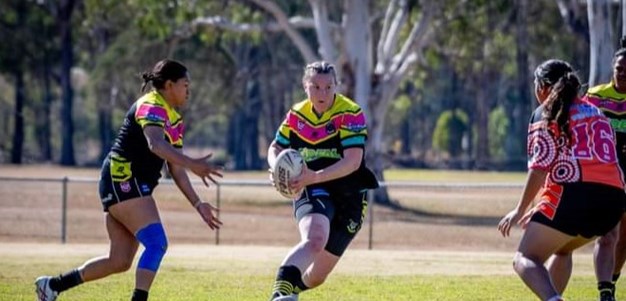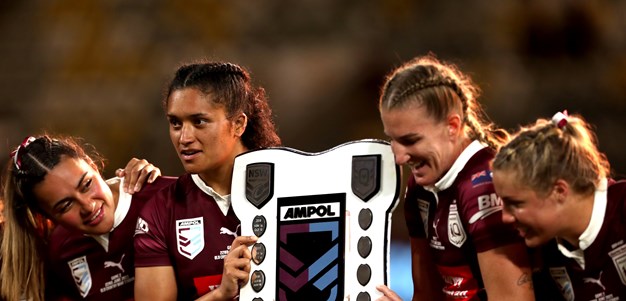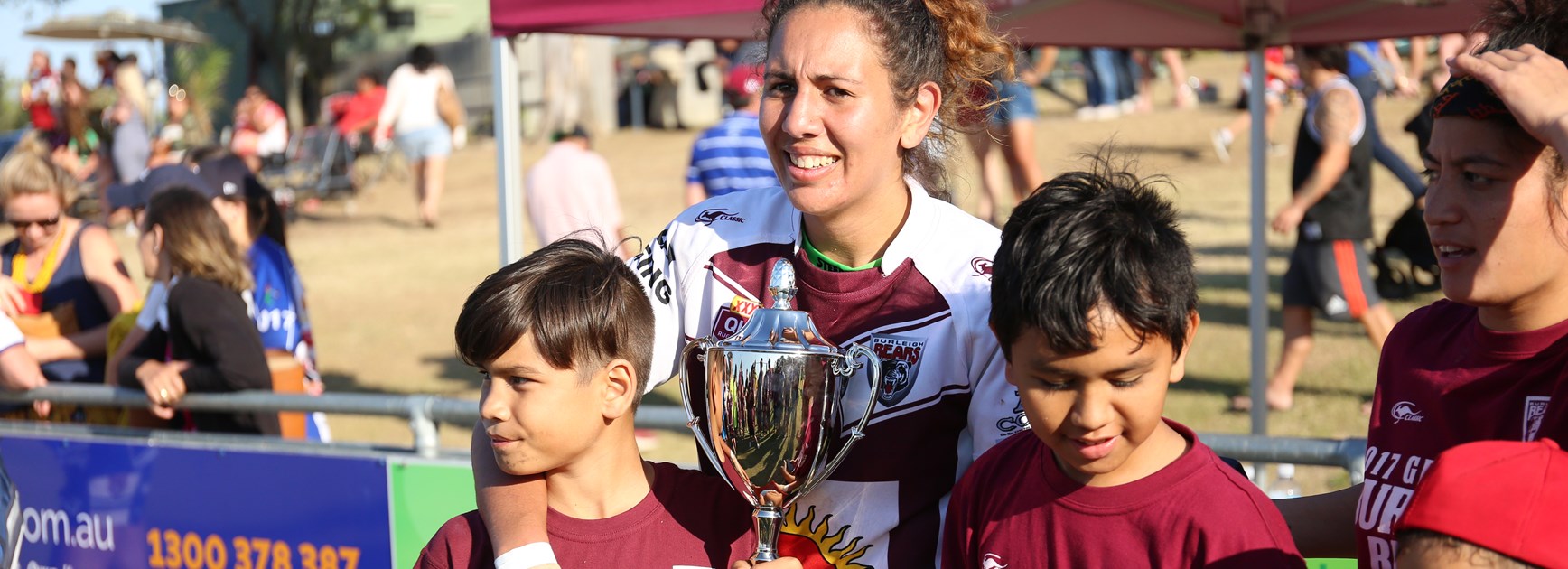
Tallisha Harden is a member of the elite top 40 squad for the upcoming NRL Women's Premiership and one of nine players representing the indigenous community.
But outside of her life in rugby league, she plays a far greater role.
Harden is a speech pathologist at the Institute for Urban Indigenous Health on the Gold Coast and dedicates her time supporting Aboriginal and Torres Strait Islander people of all ages who may have difficulties with their communication skills due to a range of various circumstances.
Research suggests indigenous children are at a higher risk to suffer from middle ear infections at a severer or more frequent rate. In return this can cause a flow-on effect and impact their speech ability later on in life, in a worse-case scenario.
"So if a little one has a lot of ear infections, they may not be able to hear properly which might end up in their speech or with language difficulties," Harden tells NRL.com.
"This is because the ears have difficulty draining and other minor factors."
Harden completed her bachelor's degree in speech-language in 2016 while on the road back from a broken ankle.
The former women's Indigenous All-stars captain admitted there were times she felt like giving the game up altogether to focus on her career after injuries and personal setbacks.
Why cross-code athletes can thrive in rugby league
"I get to meet so many amazing Aboriginal and Torres Strait Islander people each day, " Harden said of her work being the ultimate reward.
"Everyone is on their own unique journey and I'm so glad I get to be a part of that, even if only for a small amount of time.
"We spend a lot of time getting to know our families and work together to come up with goals that are meaningful and functional for them."
Harden credits her own upbringing in a "blended" family that helped get her back on track mentally and playing rugby league again.
Her father is Torres Strait Islander while her grandmother is Aboriginal, and she grew up in a community that respected indigenous cultures and traditions.
"I'm pretty lucky to have a mix," she said.
"For a small group of people we try and pack a punch. There is a big part rugby league plays in Aboriginal and Torres Strait Islander lives. I think it's a game that we all love, it's inclusive and everyone can feel a part of.
"There are so many men and women who are in the game from the elite level to grassroots. Seeing how much the clubs support the round and non-indigenous brothers and sisters support it.
"That's one thing about the indigenous and Torres Strait Islander community, they want to see their mob succeed whether they're a woman, man, young fella or girl.
"We have that responsibility to create change for young boys and girls so in 20 years time we've got sons or daughters, brothers, sisters, nieces and nephews to play.
"I think it's awesome we've got so much acceptance in the game."
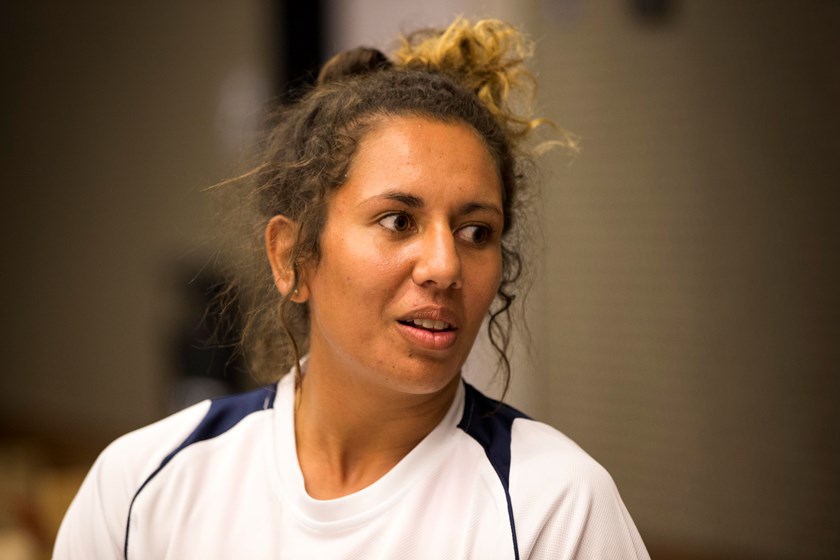
The 25-year-old has spent two seasons in the wilderness to regain her confidence at club level in Queensland.
With her health and her form both back on track, Harden is ready to return to the elite arena after being included in the women's top 40 squad in March.
"I didn't expect to get invited to the top 60 camp that was held, but was keen to give it a go and work my way back into the squad and be in the mix for teams," she said.
"When I came back it was a massive evolution. The game has become so much quicker, with all the education around welfare and how to take care of your body with sport science – girls are coming through stronger and agile.
"I just want to try and keep my spot. With the way women's footy is going there is an entire new 40 trying to take your position."
